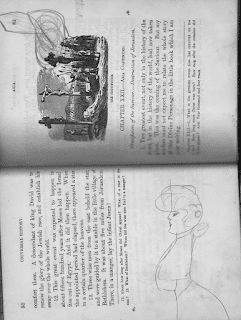Despite
the recent passage of a Senate bill, the U.S. is still making almost no
response to the challenge posed by global climate change.
Separate
from this, I plan to move to northeastern France for family reasons. This by
itself is a decisive reason for me to move there.
These
situations have allowed me to think about where I would rather live—northeastern
France vs. Oklahoma—during the upcoming inevitable worldwide climate crisis,
and where I would prefer that my grandchildren grow up. These are personal
reasons, but some of them may be useful to the rest of you. (I never post
essays on this blog that are only of personal interest to me.)
(Photo from The Guardian)
A.
Direct responses to climate change
1.
I
want to live somewhere away from the coast, where sea level rise is already
causing problems. Oklahoma and northeastern France are both equal in being far
from the nearest coastlines. Conclusion: America is about the same as France in
this regard.
2.
I
want to live someplace that is not prone to floods or droughts. Again, Oklahoma
and eastern France are equivalent in this regard. Both have occasional severe
floods in recent years, as well as droughts and wildfires. In France, the
wildfires are in the south. Conclusion: America is a little less safe than
France in this regard.
3.
I
want to live someplace where heat waves are currently brief. Here, northeastern
France has the advantage that their canicules and vagues de chaud
are shorter than in the U.S. Conclusion: America is a little less safe than
France in this regard.
4.
I
want to live someplace that is not utterly dependent on fossil fuels. Though
Europe still largely depends on fossil fuels, such as gas from Russia, there
are more alternative sources of energy there than in America, on a per-capita
basis. This includes nuclear energy, which is common in France. The stresses of
international energy politics will have less effect on France than on America
in upcoming decades. Conclusion: America is a little less safe than France in
this regard.
5.
I
want to live someplace with robust agriculture, since droughts and storms will
inevitably reduce agricultural production and national food security. American
agriculture is famous for its agricultural output, but it is almost entirely
dependent on fossil fuel inputs for energy and fertilizer, and to pump groundwater.
An interruption of transportation would hobble American agriculture. France has
a large agricultural output (it seemed to me that Lorraine was almost one big
wheat field, and maize is common in Alsace). A major contributor to stability
of food production is farmers’ markets, which are much more common in France
than in America. However, agricultural production in France, even the wet part,
has been hit strongly by recent droughts. Conclusion: America is a little less
safe than France in this regard.
B.
Indirect effects of climate change. As detailed in Christian Parenti’s book Tropic
of Chaos, the world already has many threats to peace and security, and
many of these are related to environmental disasters such as drought. Climate
change will exacerbate these problems that already exist. For example, there
will be even more climate refugees crossing national borders than at present.
1.
I
want to live in a society in which people are willing to give up a little
personal comfort for the common good. America is not such a place. Almost a
third of Americans have refused to do anything, anything at all, to reduce the
spread of covid. Fortunately, the public spirit of the remaining two-thirds
(vaccines, masking, social distancing) has brought about the evolution of
milder viruses.
a.
Would
Americans be willing to use less air conditioning, less heating, or less water
in order to prevent a society-wide shortage? I do not think so. Europe is
already much more frugal in their use of resources than America, and, to compensate
for the reduction in Russian gas supplies, has indicated a willingness to
use a further 15 percent less. In both
places, whenever you flip a switch or turn on a faucet, it is called “demand,”
as if you insist to the death on your right to use as much as you want,
regardless of your neighbors. But in America it really is a demand. Conclusion:
America is much less safe than France in this regard.
b.
In
America, we insist on the right to create as much public nuisance as possible,
especially noise and litter. My house in Oklahoma is right under a flight path
for vintage airplanes, which fly low overhead all day every day and sometimes
half the night. In Oklahoma, we have (by my repeated count) a hundred pieces of
garbage for each mile of highway. France also has bruit and déchets
sauvages, but not nearly as much. At least in northeastern France, people
are quiet and polite, except in Paris. Conclusion: America is worse than France
in this regard.
2.
I
want to live someplace with lower crime. This is because, as economic stress
spreads worldwide, crime will increase everywhere, and I want to start from a
lower threshold. Clearly, France is safer in this respect. I want to live
someplace with fewer guns. The French have few; but in Oklahoma, gun ownership
is epidemic. It is illegal for a judge to order a mentally unstable
person to be denied gun ownership. Recent Congressional legislation has helped
a little. Conclusion: America is much less safe than France in this regard.
3.
I
want to live in a society without underlying racism. Although northeastern
France has Nazi sympathizers who occasionally spray-paint swastikas in public
places, the U.S. also has this problem, in addition to frequent police
shootings of blacks, and mass shootings that are absent from most other parts
of the world. In France, Arabs are a minority with whom the dominant culture
has friction. But in America, the friction between whites and blacks, and
whites and Hispanics, is greater. France has no equivalent of the utter
suppression of Native Americans. Racism, all over the world, will get worse. Conclusion:
America is much worse than France in this regard.
4.
I
want to live someplace with good public infrastructure. I look forward to not
having to own a car or drive. In America, you pretty much need a car unless you
live in a rest home. This will become more important as gas becomes more
expensive. American infrastructure repair is more expensive than in France
because France simply does not have as many big pickup trucks (I don’t remember
seeing any), although they do have commercial trucks (les camions). Conclusion:
America is worse than France in this regard.
5.
I
want to live someplace that has no possibility of rulership by religious
fundamentalists. So-called Christian Fundamentalists get their way on almost
every issue in America, especially in Oklahoma, where a single fundamentalist
teacher can get a whole school system downgraded. France has Fundamentalist
Muslims, but they have no chance of controlling national politics. Conclusion:
America is much less safe than France in this regard.
6.
I
want to live in a country that is at peace with its neighbors. Europe is famous
for its seamless union of nations. France’s problem with illegal immigration
from the south, across the Mediterranean, is less than America’s problem with
illegal immigration not only from Mexico but all of Central and South America,
without a sea to slow it down. Illegal immigration will get worse with global
warming, more so in America than in France. Conclusion: America is much less
safe than France in this regard.
7.
I
want to live in a country that is not threatened by Russia, led by the
obviously insane Vladimir Putin. All of Europe is in danger from him, while
America is protected by an ocean. However, Europe is less likely to be a
Russian nuclear target. One of the top targets is right here in Oklahoma. Conclusion:
America is about the same as France in this regard.
8.
I
want to live in a country that is not totally dominated by major corporations.
In France, corporations have more influence than individual citizens, but the
problem is worse in America, where at least one corporation has stated
(according to This Changes Everything by Naomi Klein) that global
warming and its resulting threat of international conflict would be a great
opportunity to sell weapons. Conclusion: America is much less safe than France
in this regard.
One
of the things I will miss about America is the number of spectacular places to
travel, especially the diversity of natural areas. America has everything from
deserts to forests to alpine tundra. But, fortunately, I did a lot of traveling
before retirement age. I been everywhere, man. Now, though I am not elderly, I
am old enough to find travel stressful. France has forests in the north and dry
scrublands in the south, a much diminished range of landscapes than in America.
Relative to area, both countries have about the same amount of beautiful
coastline. In France, I can get to lots of nice places without a car. I would
be really bummed out if I knew that, in moving to France, I’d never get to see
the giant sequoias of California, of which France has no equivalent.
Fortunately, I have walked among them about a dozen times. I’ll have to be
content with the memories.
I
would be moving to northeastern France with my family anyway. But, in a
traumatic future of global climate change, I have found twelve ways in
which France is at least a little better than America and two ways in
which the two countries are equivalent. I found no examples in which France was
worse.
There
are numerous things about France that many Americans would not like, but which
do not bother me. I can summarize these ways: “In France, taxes are high and
life is good.”
Moving
to a new country, with a new language, is difficult, and it is not a reasonable
solution for most of you. But think about it.




